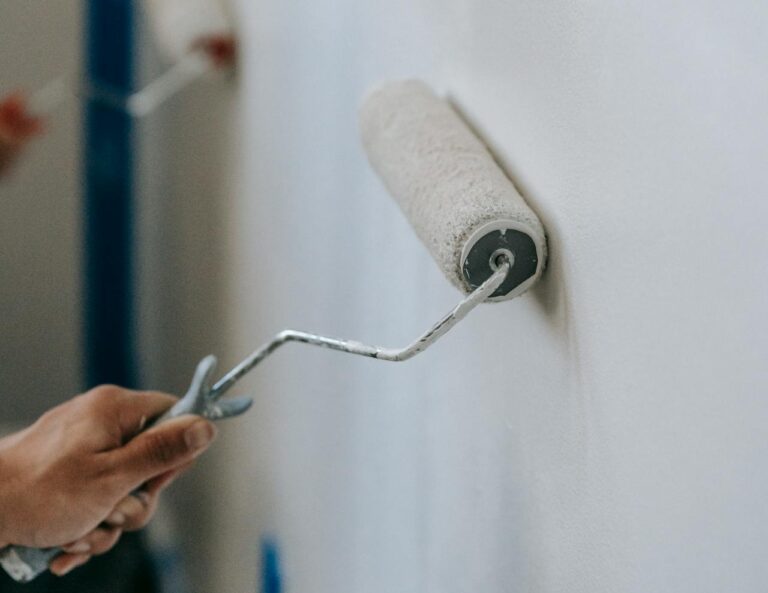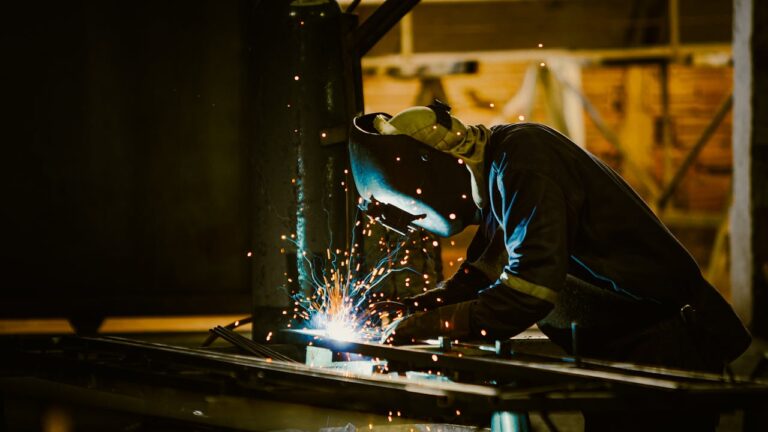
Selecting the best pool pump for your inground pool is an important step in preserving its cleanliness, clarity, and safety. The pump is one of the key components of the filtration system of your pool; it sends water through the filter to get rid of dirt and contaminants. However, one of the most essential aspects to consider when choosing a pool pump is horsepower (HP). So how much horsepower pump for an inground pool do you need?
In our blog today, we will discuss the factors that influence your pump horsepower how it will affect the performance of your robotic pool cleaner, pool vacuum robots, and skimmers, and how to select the perfect pump for your inground pool.
Why Does Horsepower Matter for Your Inground Pool Pump?
The power and ability of a pool pump to move water is referred to in terms of horsepower. It indirectly controls how effectively the water goes all through your pool’s filtration system and how effective your robot pool cleaner or pool cleaning robot is. Choosing the correct horsepower means your pool’s cleaning equipment runs efficiently, while the wrong horsepower can waste extra energy and may not deliver proper cleaning.
A pump that’s too small will fail to circulate the water properly, while a pump that’s too large can destroy your pool system and spike your electricity bill.
Pump Horsepower: Key Factors To Help You Choose It
There are several factors that go into choosing the correct horsepower for your inground pool pump. These include: the size of your pool; the flow rate you want; the plumbing system of your pool; and the types of cleaning equipment that you use.
Pool Size
The first thing to think about is your pool size. The water volume in your pool directly leads to how powerful of a pump you require. What this means is a small pool will need far less horsepower than a big pool, as there is less water it needs to move.
Mom’s tip: Calculate the volume (in gallons) of your pool to determine the size. A bigger pool will take more horsepower to properly circulate the water and filter out the debris. Generally speaking the higher the volume of gallons of water your pool contains, the more powerful a pump you will require.
Flow Rate and Turnover Rate
The turnover rate is how fast the pump can move the water within the pool volume. The goal is to circulate your entire pool water in roughly 8 hours.
To find the flow rate required for your pool, take the volume and divide it by the turnover time (in minutes). If, for example, yours is a 30,000-gallon pool and you’d like for it to turn over in 8 hours (480 minutes), you’ll need a pump that moves a minimum of 62.5 GPM (30,000 ÷ 480).
Pool Plumbing System
The pump size is also determined by your pool’s plumbing system. Larger pipes and fittings make it easier for water to flow with less horsepower to circulate. The smaller the pipe or the longer the run, the more resistance creating more friction that likely needs a more powerful pump.
Energy Efficiency
In selecting the appropriate overkill, energy efficiency is an important factor. Typically, stronger pumps will consume more electricity, increasing your utility bills. New-generation robotic pool cleaners such as the Beatbot AquaSense Pro or Beatbot iSkim Ultra certainly have features to promote energy-efficient operations, but they create energy savings if the pump is not overpowered, and thus, cross-over loss energy would increase total energy consumption, putting these savings at risk.
How Many Horsepower Do You Really Need?
The following is a breakdown of the generic horsepower required by various pool sizes:
Small Pool (Under 15,000 gallons): Typically a 0.75 HP to 1.5 HP pump for pools up to 15,000 gallons.
Medium Pool (15,000 – 25,000 gallons): You can use a pump that’s between 1.5 HP to 2.0 HP for medium-sized pools.
Large Pool (Over 25,000 gallons): If your pool is on the larger side, you might require a 2.0 HP to 2.5 HP pump to manage the greater water volume.
Keep in mind that these are the general recommendations, and your pile plumbing and other variables (such as having a robot pool vacuum or robot pool cleaner) could require a different horsepower recommendation.
How Do Pool Cleaning Robots and Equipment Work with Horsepower?
In addition, about flow rate, you want to choose the right horsepower to be appropriate for the performance of your robotic pool cleaner or pool cleaning robot. Select a pump that does not produce too much water and act this can make your cleaning robot fail.
For example, something like the Beatbot AquaSense is a robot that needs to move at a certain flow rate in order to be able to move around your pool well. A pump that is too powerful might obstruct the robot pool cleaner’s movement and prevent it from moving from one area to another and heading into corners or against the sides of the pool.
The larger the size of the pump, the less optimal pool skimmers and vacuum cleaner robots will be able to perform their function. Excessive suction caused by a pump may hinder the operation of the pool vacuum robot by drowning it out with water power. On the other hand, a pump that’s too small might not create enough suction for the pool cleaner robot to pick up debris.
What Happens When You Overpower Your Pool Pump?
An overpowered pool pump — one that has more than the recommended horsepower for the size of your pool — can cause a variety of problems, such as:
Higher Power Bills: A bigger pump consumes more energy, which increases your electricity costs. However, even if you use an energy-efficient robotic pool cleaner (or pool vacuum robot), the pump’s overhead power could cancel out the energy cost savings.
Potential Damage: The increased water pressure due to a too-high pump can put additional stress on your pool plumbing, filtration system, and cleaning equipment such as robot pool cleaner models and pool skimmers. Over time, such negligence can cause damages that may amount to expensive repairs.
Poor Water Circulation — Yes, a pump that’s too powerful can even work against the filtration system in your pool. If it flows too quickly, the water can start to short-circuit the filter, resulting in subpar water quality.
Also Read: How to Choose the Right Electric Actuators for Your Industrial Needs?
How Variable-Speed Pumps Fit into the Picture?
If you feel uncertain about proper horsepower, another alternative is a variable-speed pool pump. These pumps enable you to customize the speed and power according to your pool’s requirements. You can use your pump for energy savings by running at a lower speed during off-peak hours, and then ramping up when higher power is needed—like when running your robotic pool cleaner.
Variable-Speed Pump: If you have a newer pool cleaning system, this type of pump will work alongside it. It can also help you get the most out of your pool robot cleaner, skimmer, and vacuum cleaner for the pool.
Conclusion
Choosing the correct pump horsepower for your inground pool will depend upon numerous factors such as pool size, flow rate, plumbing characteristics, and the style of pool-cleaning equipment that you have. Using a robot pool vacuum regularly or finding the best robotic pool cleaner such as the Beatbot AquaSense Pro, will not work if you fail to pick the right pump horsepower to keep your pool running efficiently.
It is important to take into account your pool size (volume), flow rate (required circulation), and the absorption of your cleaning devices to choose the ideal horsepower for your inground pipe pump. Bigger isn’t always better for pool pumps, and finding the right compromises between pump size and pump efficiency will help make sure you always have a swimming-ready pool.








